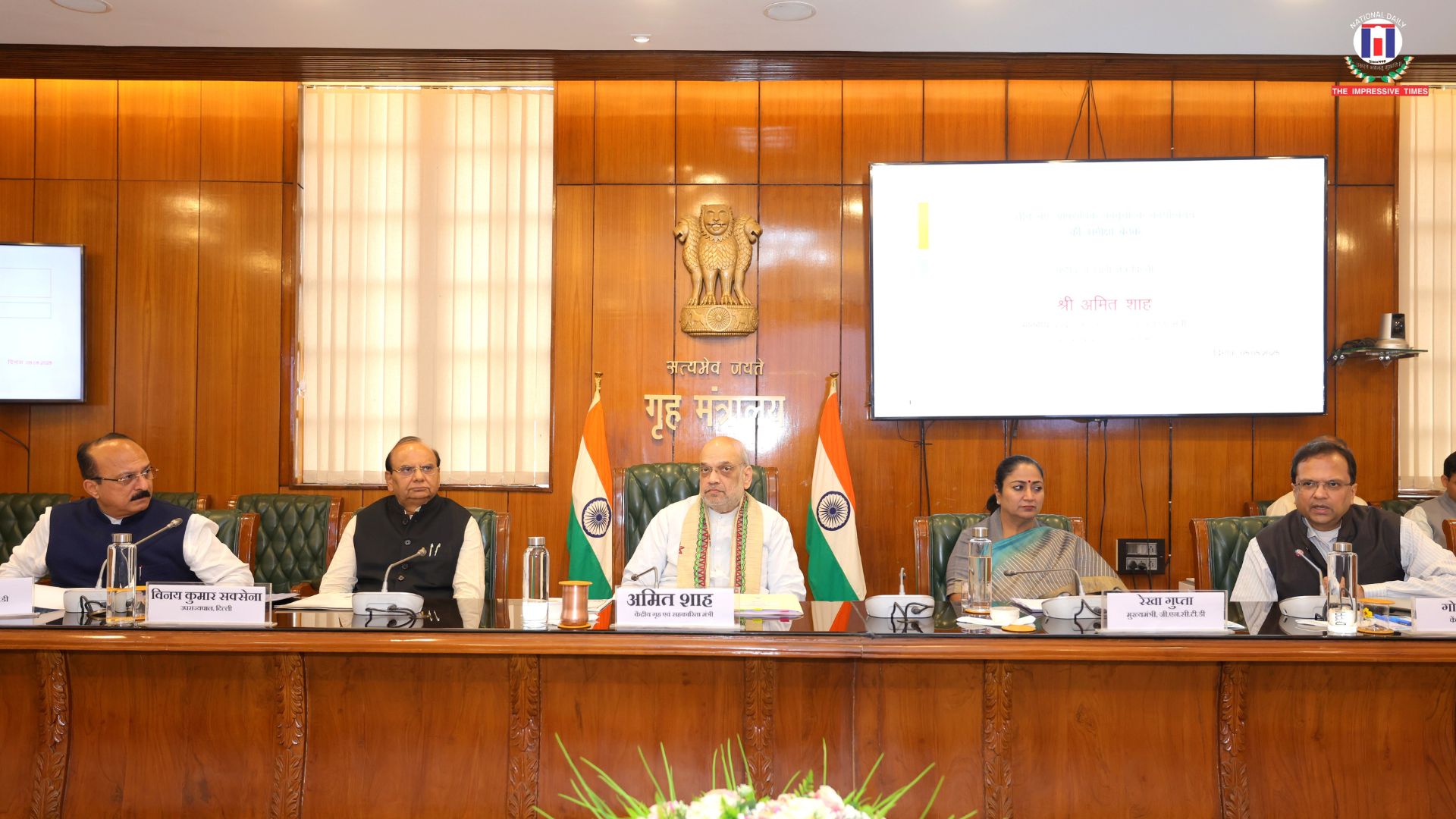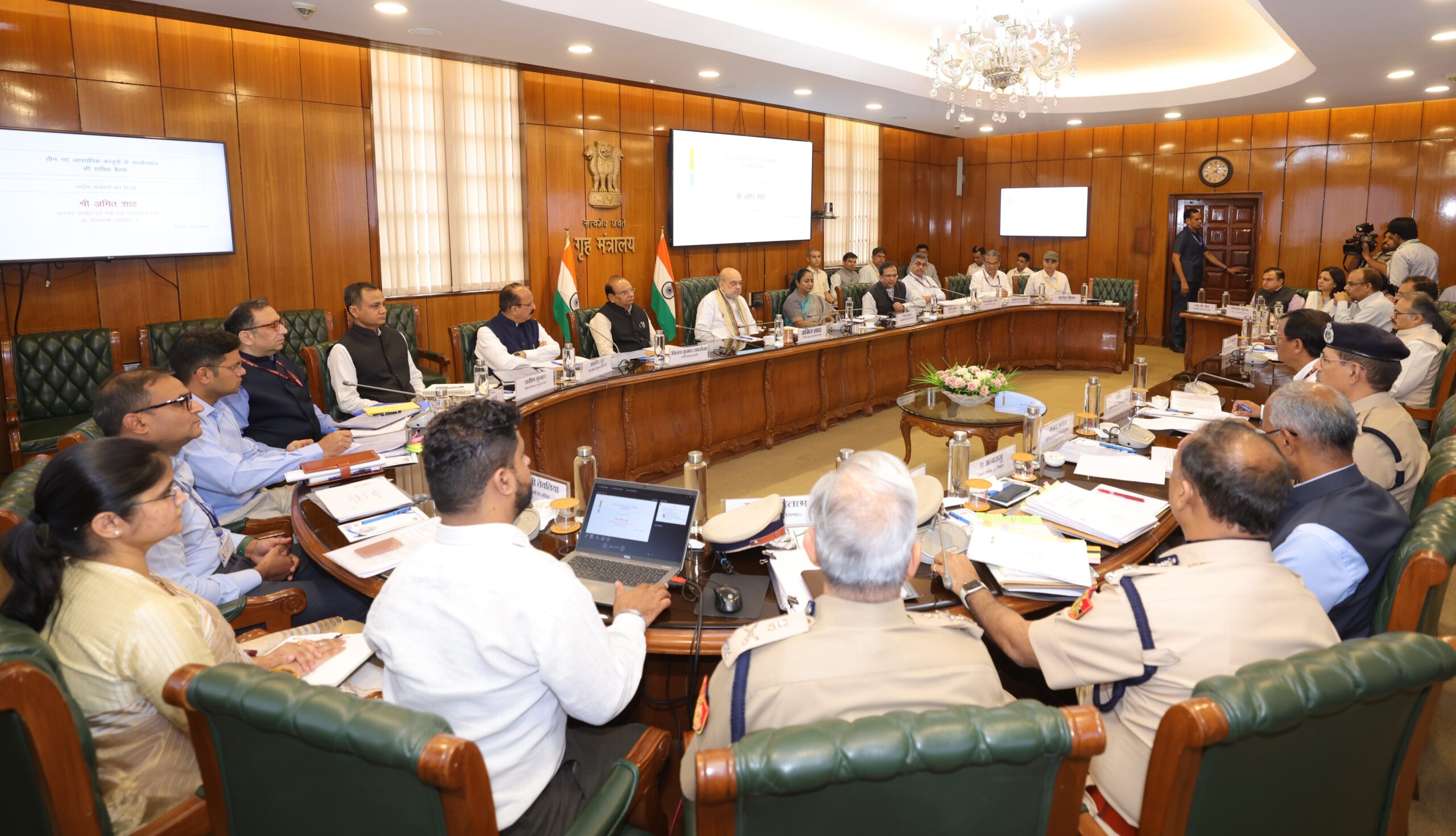
New Delhi, May 5, 2025: Union Home Minister and Minister of Cooperation Amit Shah chaired a comprehensive review meeting in New Delhi today to assess the implementation of the three newly introduced criminal laws. The meeting focused on evaluating the on-ground execution of legal reforms intended to modernize India’s criminal justice system and ensure greater transparency, efficiency, and accountability, particularly within police and judicial institutions.
The session brought together top officials from both the central and Delhi governments. Among those in attendance were the Lieutenant Governor of Delhi Vinai Kumar Saxena, Delhi Chief Minister Rekha Gupta, the Union Home Secretary, Chief Secretary of Delhi, Commissioner of Delhi Police, Director General of the Bureau of Police Research and Development (BPR&D), Director of the National Crime Records Bureau (NCRB), and other senior functionaries from the Ministry of Home Affairs and relevant state departments.

The review was focused on various components of the new legal framework, including reforms in police functioning, court proceedings, prison administration, forensic services, and the prosecution mechanism. These three criminal laws—introduced under the leadership of Prime Minister Narendra Modi—are aimed at replacing outdated colonial-era statutes with provisions better suited to a modern, rights-based, and technology-driven society.
Amit Shah stressed that the successful implementation of these laws requires a complete shift in mindset and approach at all levels of law enforcement. He pointed out that the new laws provide a legal foundation for speedier investigation, more reliable prosecution, and better protection of victims’ rights. To make this a reality, he urged officers to take ownership of the process and work with greater urgency and coordination.

One of the critical directives issued during the meeting was the strict monitoring of charge-sheet filing timelines. The Minister called for consistent oversight to ensure that investigation officers are adhering to the mandated 60- and 90-day periods for submitting charge-sheets in various categories of crimes. He emphasized that failing to meet these deadlines compromises justice and reduces public trust in the legal system.
Highlighting the importance of improved outcomes in serious criminal cases, Amit Shah set a target for law enforcement agencies to increase conviction rates in heinous crimes by at least 20 percent. He noted that low conviction rates often discourage victims from coming forward and embolden offenders. He instructed police departments and prosecution teams to collaborate closely, improve the quality of evidence collection, and ensure that cases are trial-ready when brought before courts.
Another major announcement at the meeting was the introduction of electronic summons (e-Summons). Courts will now issue summons digitally, and copies will be automatically sent to the respective police stations. This measure is expected to drastically reduce communication lags between the judiciary and the police, which have historically led to delays in proceedings.

Additionally, the Home Minister called for the urgent filling of vacancies in the Directorate of Prosecution, which plays a key role in court cases. He stated that all decisions related to filing appeals must be taken independently by this Directorate, allowing for a more specialized and legally sound review process.
Shah emphasized that these reforms are not just technical upgrades, but represent a fundamental restructuring of the criminal justice system. The goal is to create a system where justice is not only delivered swiftly but is also perceived as fair and accessible by the common citizen. This transformation, he said, aligns with the broader vision of Prime Minister Modi to create a “justice-first” approach to governance.
The meeting concluded with a roadmap for further action, including training modules for police personnel, public awareness campaigns about the new laws, and the establishment of monitoring dashboards to track the implementation at district and state levels.
This high-level review signals the government’s strong resolve to ensure that the new criminal laws are not merely written reforms, but active instruments of change that deliver justice in real, tangible ways to the people of India.


















No Comments: